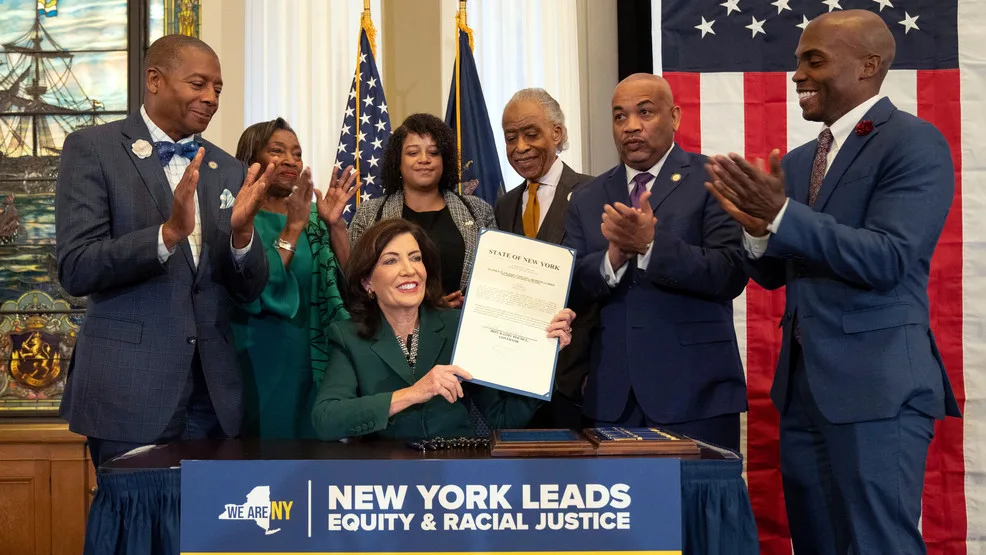
SYRACUSE, N.Y. — Gov. Kathy Hochul’s new legislation on a commission to study reparations has been viewed positively by some and negatively by others.
MORE | New York will set up a commission to consider reparations for slavery
New York state will create a commission tasked with considering reparations to address the persistent, harmful effects of slavery in the state, under a bill the governor signed into law Tuesday.
It comes at a time when many states and towns throughout the United States attempt to figure out how to best reckon with the country’s dark past, and follow in the footsteps of similar task forces in California and Illinois.
NAACP New York State Western Region Director Linda Brown-Robinson said she can’t see bills passing or see the topic even brought up in states without a stake in the outcome.
I can only see this happening in states that have demographics of large amounts of brown people.
One city that acted was Evanston, Illinois. The city became the first in the United States to enact a government-funded reparations program in 2019.
“The approach that Evanston took — their city council — was to try to bring more parity to housing,” said Syracuse University law professor Paula Johnson.
MORE | Onondaga Co. legislators respond to new commission to consider reparations for slavery
CNY Central connected with a journalist in Evanston who has covered the reparation programs in depth.
Alex Hulvalchick said funding was initially only meant to be used for housing like home repairs, or to pay rent, but that changed after a few neighbors voiced their opinions.
The conversation quickly shifted to, ‘should we alter this to have a direct cash benefit.’ That is now an option that went through this year and that has become quickly the most popular method people have chosen to get their funding.
Hulvalchick said everyone in the city seemed on board with the reparation programs.
As of Aug. 16, the city had disbursed over $1 million in reparations funds through the local reparations restorative housing program.
“A majority of the funding has come from taxes from recreational marijuana,” said Hulvalchick. “There is also funding coming from real estate transfer tax for the next 10 years starting in 2024.”
Hulvalchick said Evanston has a reparations committee set up. Robinson said rather than a committee forming, she hopes a town hall event happens to hear what people have to say.

